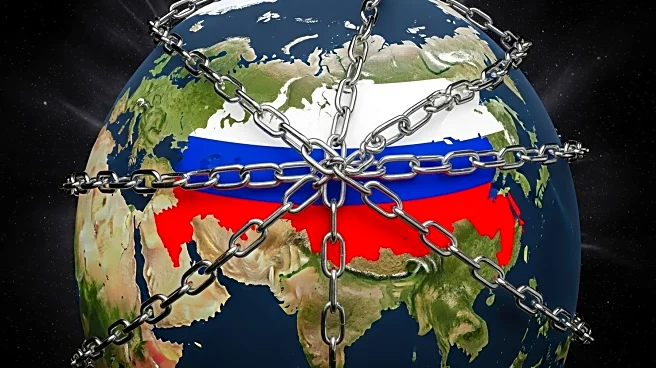What's Happening?
The European Union has announced a new set of sanctions targeting Russia's economy and energy trade, aiming to cut off funding for the ongoing conflict in Ukraine. This marks the 19th sanctions package proposed by the EU, following recent Russian drone and missile attacks on Ukraine and airspace violations in several NATO countries. European Commission President Ursula von der Leyen emphasized the need to halt Russian energy imports and pressure foreign firms to reduce business with Moscow. The sanctions aim to ban Russian liquified natural gas imports by 2027 and target crypto platforms used to bypass existing sanctions. The EU has already reduced its reliance on Russian energy and is investing in low-carbon alternatives.
Why It's Important?
The sanctions are significant as they aim to weaken Russia's financial ability to sustain its military operations in Ukraine. By targeting key sectors such as energy and technology, the EU hopes to pressure Russia into negotiations and potentially end the conflict. The sanctions could have a substantial impact on Russia's economy, which has already seen a 90% reduction in oil revenues from Europe. This move also reflects the EU's commitment to reducing dependency on Russian energy and strengthening its own energy security. The sanctions could lead to increased tensions between Russia and the EU, affecting global energy markets and international relations.
What's Next?
The proposed sanctions require approval from EU member states, a process that may take several weeks. If approved, the sanctions could lead to further economic isolation of Russia and potentially force it to reconsider its military strategy in Ukraine. The EU's focus on reducing Russian energy imports and investing in alternative sources may also accelerate the transition to renewable energy within Europe. Additionally, the sanctions could prompt Russia to seek new markets and partners, potentially altering global trade dynamics.











